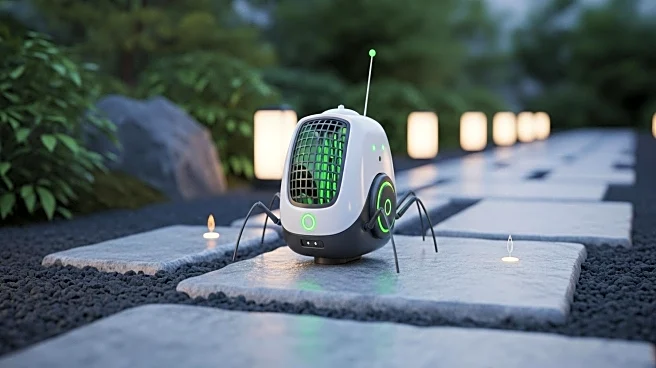What is the story about?
What's Happening?
The Japanese pest control products market is projected to grow significantly, reaching a market size of USD 1,020.7 million by 2033. This growth is driven by rapid urbanization, increased awareness of health risks associated with pests, and regulatory requirements. The market is expected to expand at a CAGR of 9.9% from 2025 to 2033. Urban areas are facing intensified pest challenges, prompting demand for effective pest control solutions such as sprays, baits, and traps. Technological advancements, including AI-enabled smart traps, are reshaping the market landscape, while eco-friendly approaches are gaining popularity. The agricultural sector is shifting towards natural pest management, with initiatives targeting a reduction in chemical pesticide usage.
Why It's Important?
The growth of the pest control market in Japan highlights the increasing prioritization of hygiene and health standards in urban and industrial settings. This trend is significant for sectors like food processing, healthcare, and hospitality, which require stringent pest management practices. The shift towards eco-friendly solutions reflects broader environmental and sustainability goals, aligning with policy initiatives to reduce chemical pesticide usage. The market expansion offers opportunities for both domestic and international players, fostering innovation in pest control technologies and practices.
What's Next?
As the market continues to grow, further innovations in smart and eco-friendly pest control solutions are expected. Regulatory compliance will remain a key driver, with integrated pest management practices becoming increasingly mandatory. The focus on sustainability and technological advancements will likely lead to new partnerships and product developments, enhancing the effectiveness and safety of pest control measures.
Beyond the Headlines
The emphasis on eco-conscious pest management reflects a cultural shift towards sustainability and environmental responsibility. This trend may influence other sectors, encouraging broader adoption of green practices and technologies. The integration of AI and IoT in pest control could pave the way for smarter urban management solutions, potentially reducing the environmental impact of urbanization.















